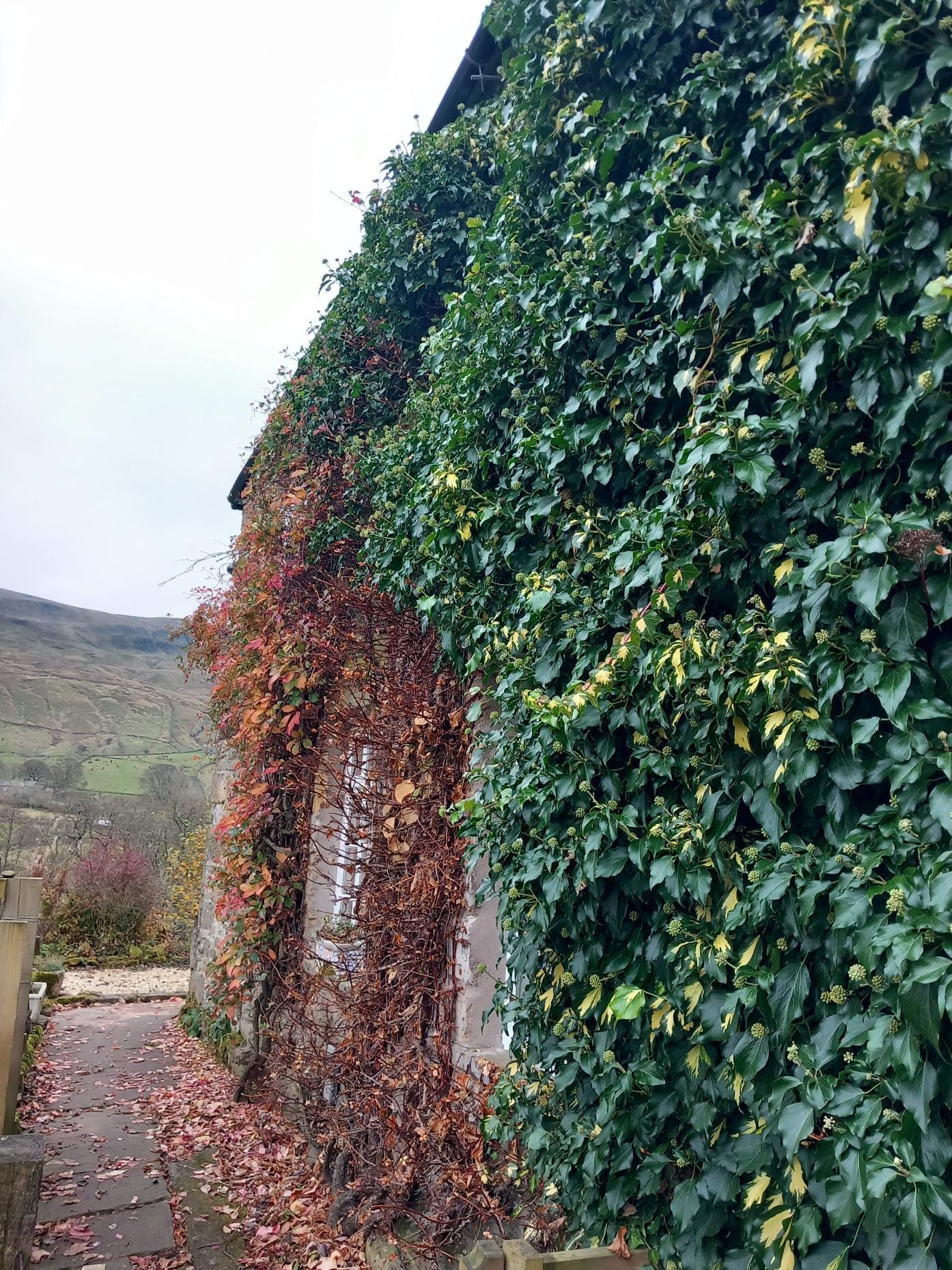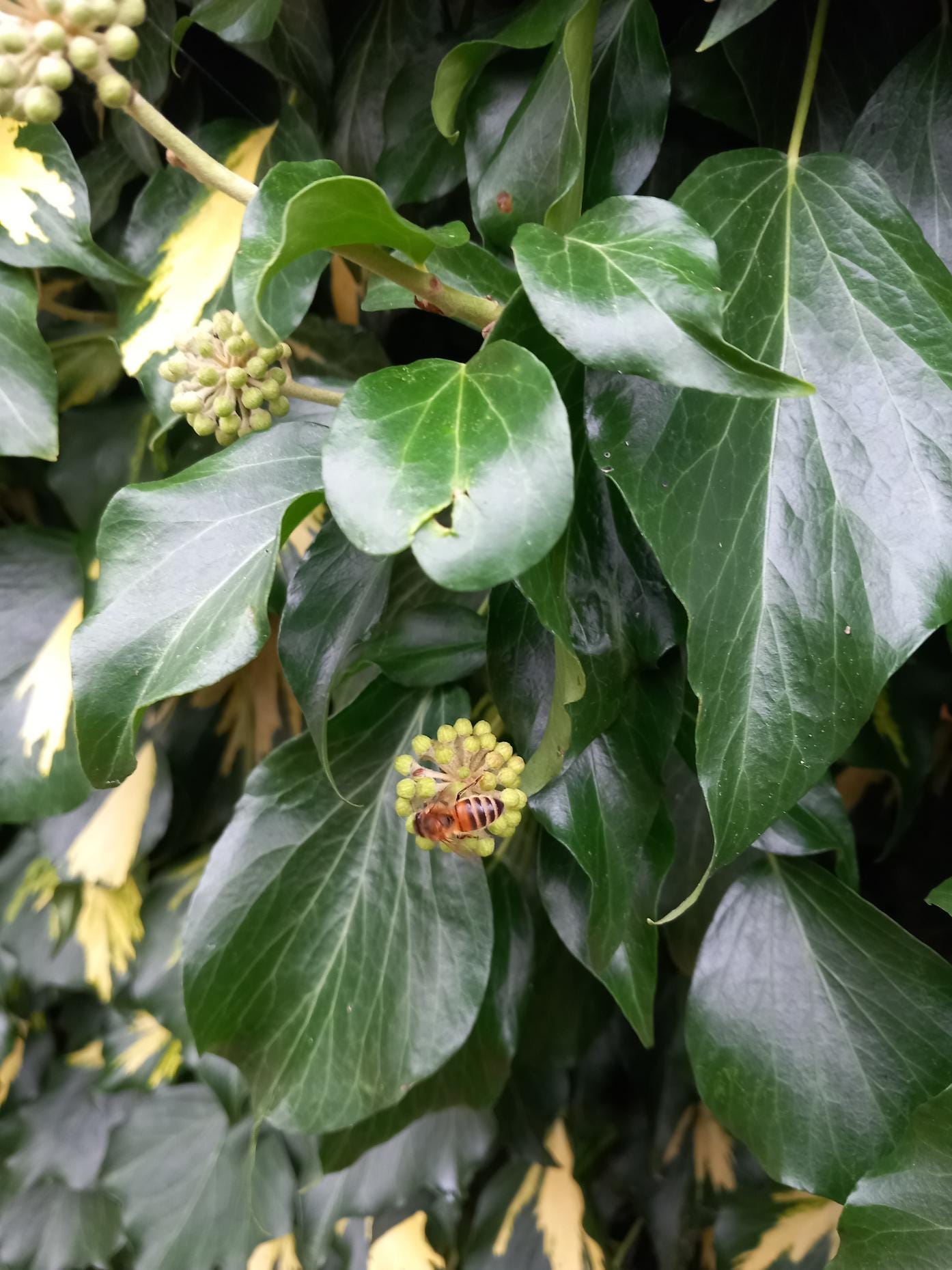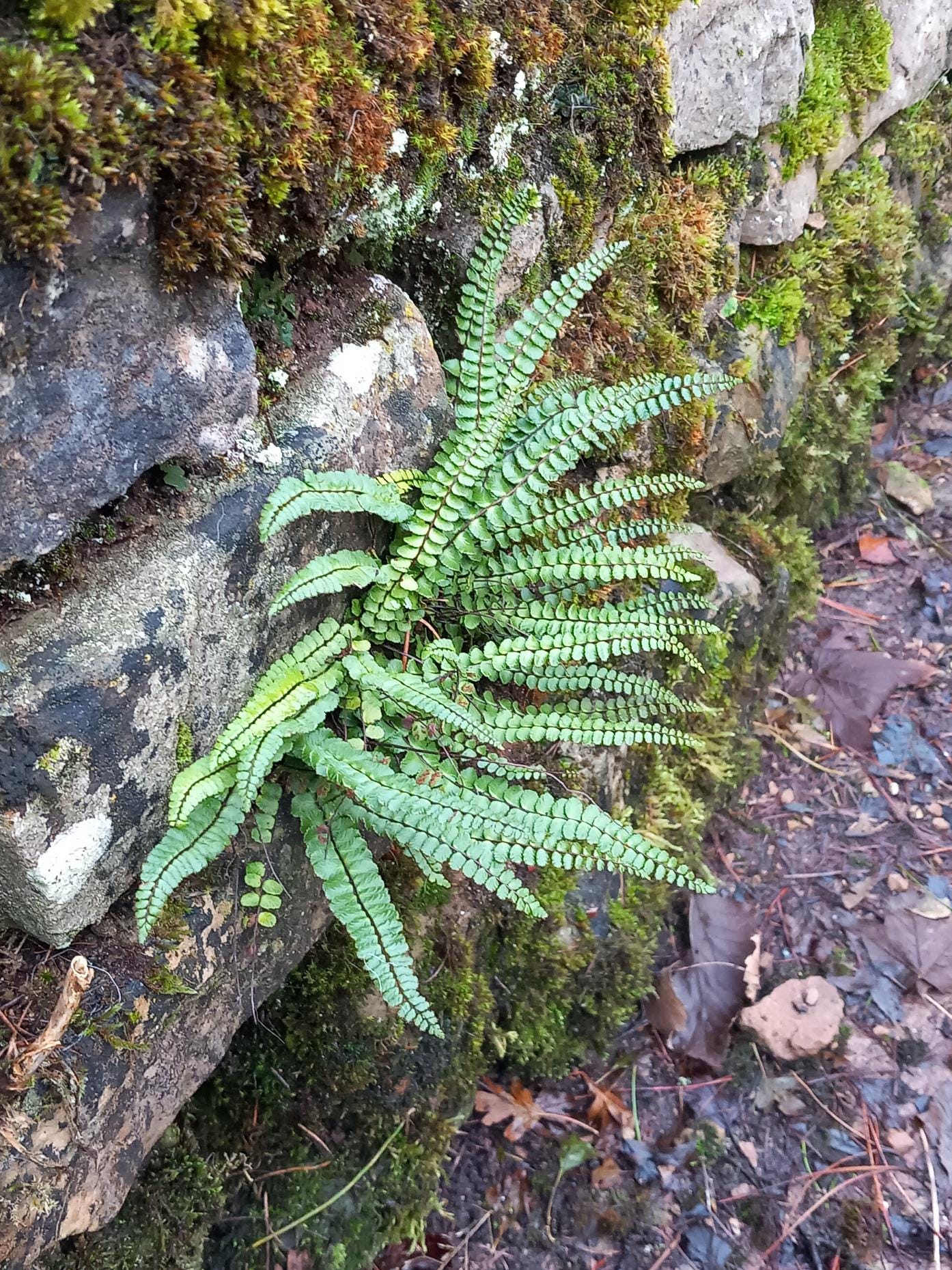Does a sparrowhawk decide? Or a salmon choose? Where in the intricate bureaucracy of a starling flock at dusk does a new direction come into being? If I watch as a hare flows jinking and twisting uphill through the short grass of March, I do not hear the clank of iron as the points change to send her onto the eastbound or the westbound track. I see only a hare on a hare’s path. Her passage is neither more, nor less straight than the curvature of light around a massive dark star.
True, I did once see a badger stop, as if pondering a fork in the road. Stopped stock still on his family’s traditional path where his father had snuffled and grunted in the sweet dark hours. And his father before him. The young boar-badger was lost, I assumed, in a reverie of indecision. Onwards to Monk’s Dale or up into Baron’s Wood? I listened intently for the click-whirr of clockwork as his analog brain processed the problem.
For his part, he listened intently only to the itch up in his armpit, his back foot waiting in ambush, sprung in an ecstasy of scratch.
The fork I thought I saw in his path was a topological misunderstanding. The badger’s universe is a möbius strip. He walks straight ahead, neither turning nor deviating from the trail. And yet, at some time approaching dawn he arrives back where he began.
We, on the other hand, have our menus. Our drop-downs from which we choose a single option. This or that. Left or right. Our points of inflexion. And the leather-bound official ledgers, feint and margin, in which we, in our turn, are duty-bound to tally and justify the pros and the cons by which we make our decisions. Sometimes the action rushes ahead of us and we have to fill in the paperwork after the event. That is permitted. Because we are always sure that we did have agency at the junctions of our lives. It is just a question of recalling the reasons for our decision and filling in the appropriate forms. How else could we answer the most pressing of questions: why did you take that path?
Only, last week as I watched the heather-top zag and zig of a fleeing snipe and felt my body sway left then right, in unison, unbeknown to itself, I became less sure of the part I was playing in any of it. Then a russet roe buck bounded away through the dawn-misty scrub and my heart rose and fell with the ridge of its rump and my feet set off of their own accord to race after it in longing fellowship. But as I sat down later over coffee to complete the paperwork, I found that I had nothing to write in the ledger.
Once these tiny spores had taken hold, the rot spread. I have begun to doubt. It sometimes feels as if things out there in the moss and the leaf-litter just happen.
But I cling on to the big calls, the defining choices. Here I sit in this house where I chose to live, burrowing into precisely this valley which I carefully selected and now seldom leave. These, surely, are mine, these choices? There was that day, nearly two years ago, when I saw for the first time this old house in the shelter of Mallerstang Edge. I decided there and then where my life would one day end. I was in charge of my destiny that day, was I not?
The estate agent showed me the views from the easterly facing windows, out over the river and up to the high fells. She spoke of transport links and amenities. I wandered after her like a well-trained dog and admired the kitchen. I have a soft spot for estate agents. They are all secret animists. They speak their faith if you listen carefully. They say, ‘The house benefits from mature garden grounds.’ Yes. It does. Or, ‘The front of the property enjoys the morning sun.’ For sure. But the many intimate things of which the wise agent spoke were not, it feels to me now, why I came here.
Oh, this is intolerable. I have to get to the bottom of it. I must take the decision of that day and distil it. Draw out its essential spirit. We’ll see what it was really made of.
From under the spidery tarps at the back of the shed I retrieved the old still. Simple enough, this moonshine magic, borrowed from the early alchemists. But a powerful inquisitor. No liquid can resist its interrogation. The heating vessel with its lid easily sealed with starch paste. The outlet pipe sleeved onto the delicacy of the copper worm,1 burrowing its spiral path down through the cold-water chamber. I set it all up on blocks in the scrap of wood which lies in a gulley below the house. Hidden from the customs and excise of the audited world.
Into the pot I ladled the coarse brew and malted mash of all my recollections from the first day I came to Mallerstang. And set the gentle fire of enquiry underneath it. A probing heat. Neither too hot and not too cold. The heat must tell the story slowly, clearly. Not gabble it all out at once.
Minutes pass. The apparatus gurgles and burps but nothing comes of it. I had been expecting a steady drip of reasons, of merits and drawbacks. Enough to fill a bottle or two.
Minutes pass. A shiny droplet forms at the worm’s head and quivers, unsure whether to fall or not into the pewter cup I have set for it. Peering through the lens of this first drop I see the ancient ivy that owns the front of the house. It was in flower that day, profusely. So uncharacteristically demonstrative for such a quiet bide-my-time plant. The slow insinuation of ivy over the wall, over the centuries, not drawing attention to itself. Let the other plants sing and dance their reds and yellows under the summer sun. This ivy blooms in the low light at the back of the year, throwing a lifeline across the ocean of winter to the tree-pollen of spring. I gasped then and marvel now at the sound the ivy made. It was singing. In a brief mild spell between frosts, while Atlantic storms paused to take a breath, it sang honey bee as I walked by.2
The drop falls. A second drop begins to bulge bright in its place. Through it I see the old boundary wall at the back of the house. Here and there is Maidenhair Spleenwort, growing in the cracks, thriving on loose mortar. They are a joy, these little dancers with their skirts swirling in the shade. Turning away, that first day as now, I catch amongst them one small Green Spleenwort, holding herself back, wondering if anyone will notice. This quiet queen of the limestone, the secret symbol of the calcareous sanctuaries of northern Britain. She is inseparable from her geological home, barely more than a drop of water and some weatherings of limestone herself. A dash of green to catch the sun’s eye. She reminds me that the Pennine limestone has always led me to clear water, to hidden dry flushes where tiny white flowers know best, to clarity.
The drop falls and the still is silent. It has reached its conclusion. I am here because a winter bee hummed a summer tune and a frond of spleenwort winked at me. The ledger must be satisfied with that. This place made me an offer and I accepted. There is no more.
I don’t know how it is in the rest of the world, but in the west of Ireland the spiral condensing part of a still is generally called ‘the worm’.
The walls of this old house are very thick and have many secret cavities. During the summer after we moved in, we discovered that a thriving colony of honey bees live inside the wall at the southern end of the house. We are eternally grateful for their presence.






“I am here because a winter bee hummed a summer tune and a frond of spleenwort winked at me.”
Thank you David, a happy new year to you and yours. What a gorgeous piece you have gifted me this morning here in Vermont, a world away from yours.
Sometimes it is just the welcoming arms of leafy branches that surround and reach out lovingly. All the little things that bring us to our place on this short beautifully human path. We should all be so blessed to find our little patch of earth in time to spend a life there. Wouldn’t it be nice if we had the innate ability of winged migration bringing us to where we are supposed to be. Where my heart will sing me into the next day.
In my own drop of reflection, I might willingly surrender all free will to a Maidenhair Spleenwort. Thanks, David.